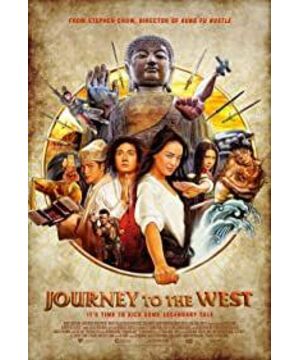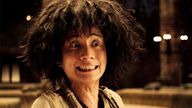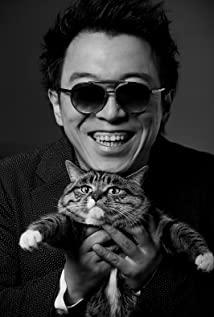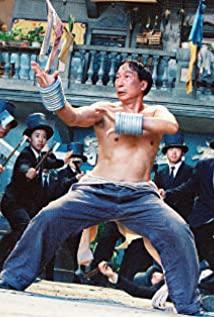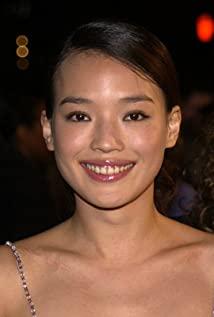still feels a little bit after watching Journey to the West Conquering the Demons. Zhou Xingxing is old, so I used to call him Lao Zhou. You can see that his hair is long, but he still frowns and has a bitter look on his face, which is more in line with the name of Lao Zhou.
Although many of the so-called jokes are not funny, there are a few places where I still laugh happily.
If you laugh, you will laugh. There is no need to use shameful laughs to be ironic like some people. Are you ashamed to laugh? If you feel shameless, just laugh, don't pretend.
1. Blood spurting self-deprecating
blood spurting This is estimated that everyone will find it funny. Three spewing blood, one and three are the funniest.
The bloody laughs reflect the characteristics of Lao Zhou's films: self-deprecating, ridiculing, and off-screen. I over-explained okay.
Self-mockery is the special effect of self-deprecating the film. The special effects of this movie are obviously mediocre, or not improved. The special effects are fake enough, and they are too cheap like a blood-spraying tube. Sorry, the machine is faulty, my special effect is fake.
Laughing at people, Yang Di said such a fake blood spurt and you thought it was true, are you a fool compared to me? Is it the stupidest?
Dear audience, you are still in tears watching my movie, aren't you an idiot? In the next shot, Miss Duan waited for five people. They kept silent, turned their heads, and the actors remained silent.
Outside the play: Lao Zhou often forcibly pulls the audience out of the play, telling you that this is really just a movie, and you should pay attention to the audience who spends the movie. It is Lao Zhou's usual trick to break the audience's sense of substitution in the film's narrative.
2 Deconstruction of Goose Legs The
part I laughed the most in the whole film was the part where Tang Seng's master used to eat goose legs to guide the Dharma. Tang Seng's teacher is naturally the Buddha. The Buddha ate a goose leg with great taste, and then said that the meat and wine that everyone on earth knows has passed through the intestines. The Buddha left a similar teaching in his heart, introducing you a little bit of the beginning, echoing the final ending.
Just after this moment, there was a metallic sound, and an aunt shouted: Did you pay for my goose legs? The Buddha replied that he had no money, and the aunt slapped off the fake hood of the Buddha with one hand, and the two fled in panic.
This is Lao Zhou's housekeeping skill, and it was often used in the golden age of his films.
Tragedy is to show you the destruction of worth. Comedy is tearing the worthless to you. Lao Zhou is to tear up the valuable as the worthless and show it to you. Do you say you laugh or cry?
When people were just immersed in the teachings of Buddha, and they felt good when they looked at Buddha's fat face, and they felt cute and warm, a loud drink immediately interrupted this emotion and pulled people back to the cruel reality. They also wanted money, and the Buddha who had no money was still chased and beaten. The myth of the Buddha was thus dispelled.
People often say that Lao Zhou is a master of deconstruction, and this is deconstruction.
3 Cruel recovery
I see a lot of people saying that Lao Zhou is a little fresh with heavy taste. I think that completely reverses the evaluation of Lao Zhou. In other words, Lao Zhou and Xiao Qingqing have nothing to do with one penny. Lao Zhou is the most thorough heavy taste. Cruel, cold, and terribly perverted. It used to be like this, then it got weaker, and now the movie is back to the heavy taste of its peak.
The innocent little girl at the beginning was eaten by a fish monster right under her mother's eyes after a thrilling adventure. And her mother relied on the powerful strength of motherly love and morality to support the fish demon, and then she was also eaten.
There's the pig monster's roast suckling pig, Miss Duan disassembles the monster into eight pieces, the monster monkey chops Tang Seng's scalp, and the monster monkey bites the Five Elements Boxing like a vampire zombie. .
The demon monkey said easily, "Yes, I had a good time today." Then, when people thought that Young Master Void had a funny follow-up, the two of them were blown away with one spray, and the bones were gone.
Then there is the last thing to beat Miss Duan into a corpse like a goddess scattered flowers and turn it into fly ashes.
The general audience will never accept it. Lao Zhou has always been that demon monkey, the so-called truth, goodness and beauty in the movie, the movie itself, the audience, and sometimes himself. This is the seventh heaven demon king of that grassy era, the Monkey King, the Monkey King.
4 The stubbornness of Utopia is
based on the recent films: Lollipop in Kung Fu, Yangtze No. 7 in Changjiang No. 7, and Three Hundred Children's Songs in Journey to the West
Kung Fu football (I haven't seen it), this is not a way for Xiaoqing to pretend. This is the superficial image interpretation of Lao Tzu's "being able to be a baby", the only hope in Lao Zhou's dark world, and the stubbornness of pure utopia that is impossible to achieve at all.
Lao Zhou is a master of dark humor. What is black humor? That's not a cold joke, but a complete despair for the world, because if you continue to despair like this, you will die, so you have to rely on cynicism to ensure your survival.
Lao Zhou survived by making movies that are downright dark humor, and these dark humor make us despairing people survive with a wry smile.
There are also possibilities that are called ideals, and utopias that can never be achieved, but what if all your ideals are impossible to achieve?
Fortunately, we still have Lao Zhou's movies to support us living in a cruel reality. There are also those lollipops and nursery rhymes that look stupid and childish in his movies. You say, do human beings live mainly by ideals or by utopias?
So, those who say the end of history, what is your mentality?
View more about Journey to the West reviews


